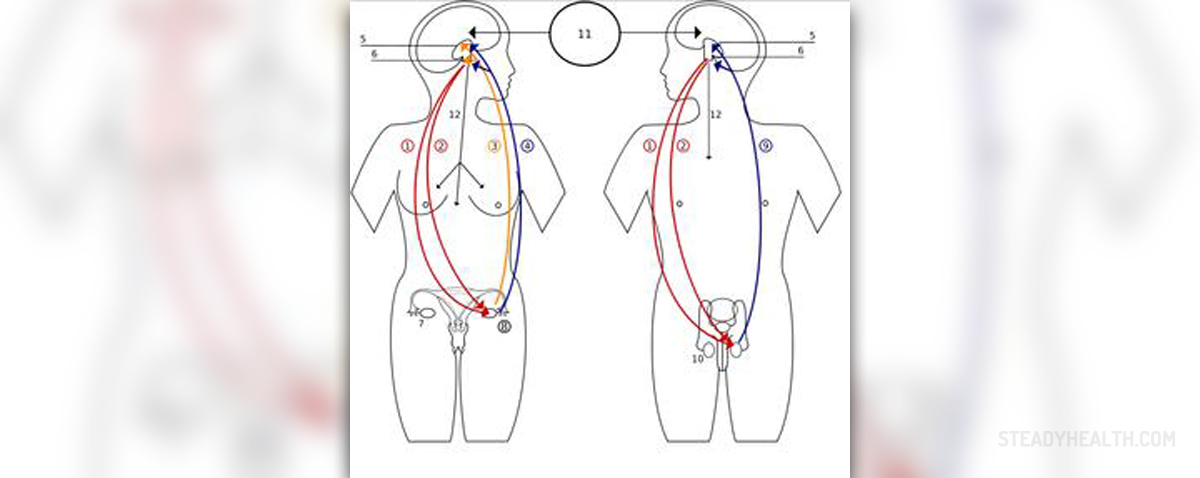
Symptoms of endocrine disorders are varied in their makeup and severity. Symptoms can be mild or severe, and the type of symptoms will depend on the affected endocrinal part. For example, symptoms will differ between each type of endocrine disorder, such as diabetes, acromegaly and Addison’s disease.
Diabetes
The most common endocrine disorder experienced today is diabetes mellitus. This condition occurs as a result of a lack of sufficient insulin. Symptoms of diabetes include excessive thirst, fatigue, nausea and vomiting, weight gain, weight loss and changes in ones vision.
Acromegaly
Acromegaly affects the pituitary gland, and causes it to produce an excess of growth hormone. Symptoms of this condition include abnormal develop of the lips, nose, tongue, hands and feet. One might also experience altered facial bone structure, joint aches, body aches, deepened voice, weakness, fatigue, headache, sleep apnea, visual impairment, sexual dysfunction and the excessive growth of bone and cartilage.
Addison’s disease
This condition leads to a decreased production of cortisol and aldosterone. These problems results from adrenal gland damage, and causes symptoms such as fatigue, depression, diarrhea, headache, hypoglycerima, appetite loss, hypotension, menstrual irregularity, craving for salt, weight loss and weakness.
Cushing’s syndrome
As opposed to Addison’s disease, Cushing’s syndrome occurs as a result of the presence of excess cortisol. Symptoms of this condition include skin discoloration, thirst, fatigue, osteoporosis, Buffalo hump, frequent urination, hyperglycemia, hypertension, irritability, mood swings, obesity, rounded face, and weakness.
Graves’ disease
There exists a type of hyperthyroidism known as Graves’ disease. This results in diarrhea, sleeping problems, fatigue, goiter, irregular heart rate, tremors, tachycardia, and weight loss.
Hashimoto’s thyroiditis
This condition leads to a targeting of the thyroid by the immune system. This leads to hyperthyroidism and symptoms such as constipation, fatigue, goiter, dry hair, cold intolerance, joint pain, menstrual irregularity, slower heart rate and weight gain.
Hyperthyroidism itself leads to diarrhea, sleeping difficulties, fatigue, goiter, heat intolerance, intolerance, mood swings, tachycardia, tremors, weakness, weight loss. This should not be confused with hypothyroidism, which leads to cold intolerance, decreased sweat production, dry hair, constipation, fatigue, goiter, joint pain, muscle pain, menstrual instability, slowed heart rate, swollen face, and weight gain.
Prolactinoma is a condition that arises from a defect in the pituitary gland, and can lead to symptoms such as erectile dysfunction, infertility, lack of libido, menstrual instability, and unexplained milk production.
Endocrine symptoms can sometimes indicate the presence of a life-threatening condition. Such symptoms include dehydration, extreme hypotension, breathing difficulties, depression and anxiety.





-And-Children-16-Warning-Signs-And-Symptoms_f_280x120.jpg)










Your thoughts on this
Loading...